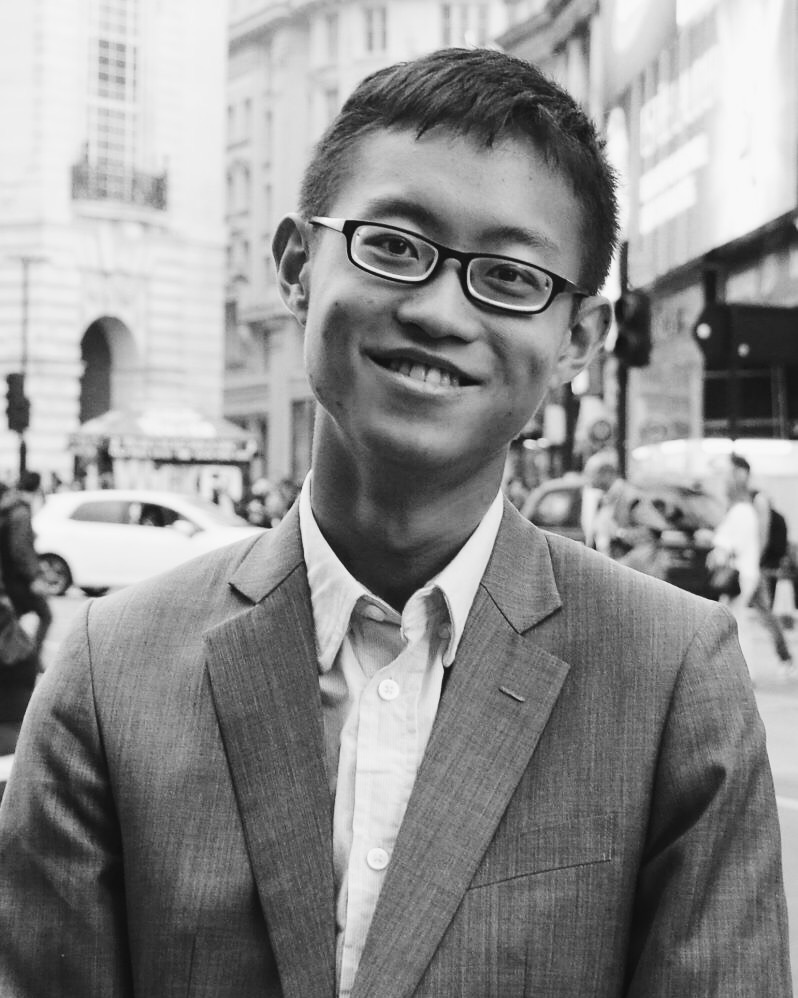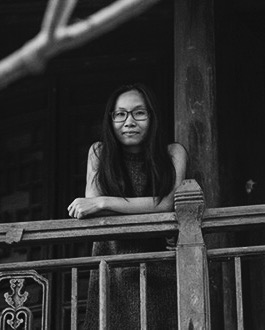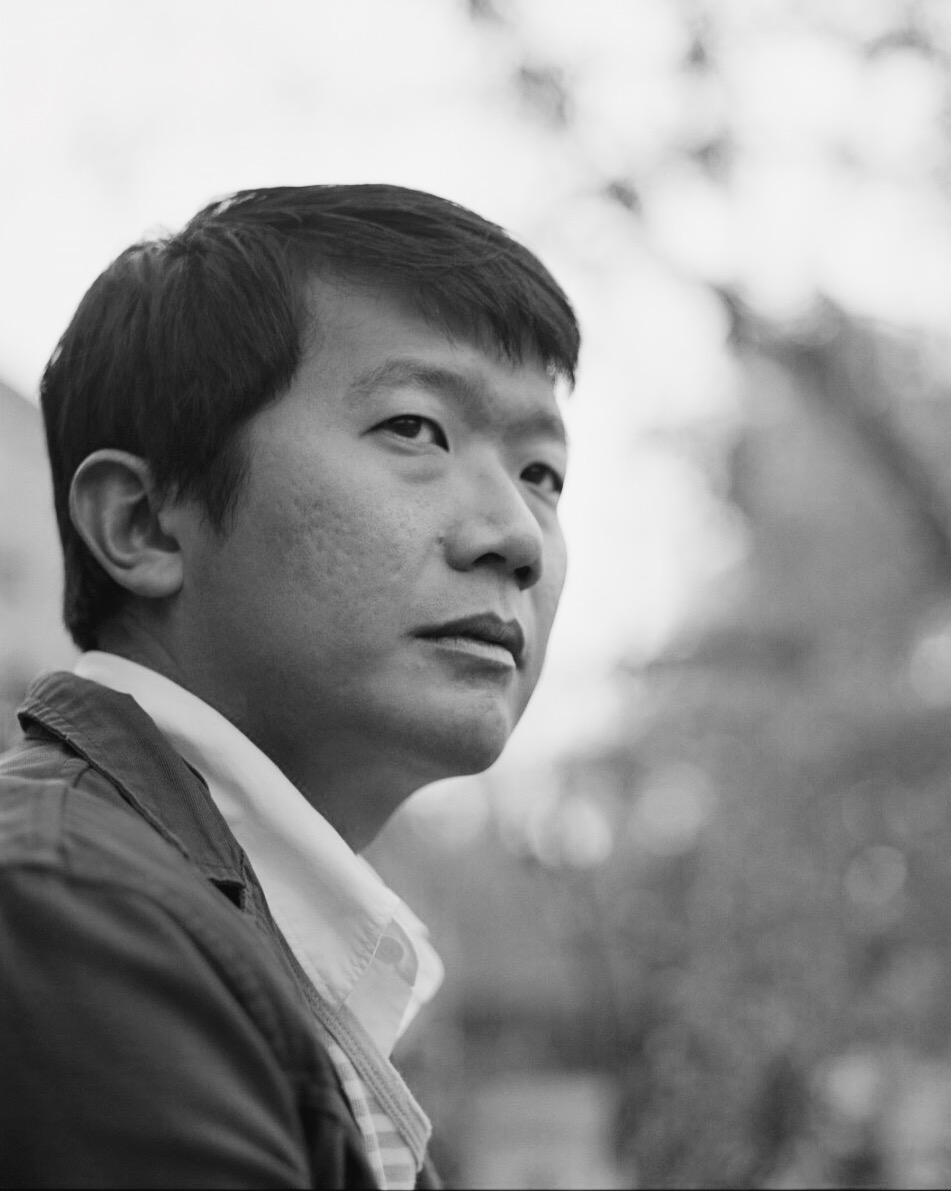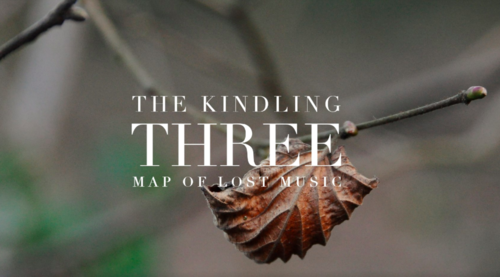The inaugural edition of the Hawker Prize for Southeast Asian Poetry received a total of 57 eligible poems from 40 submissions around the world; out of all of them, poems published by the Asian American Writers' Workshop, The Kindling, AJAR and more nabbed a total of $2500 and five Honourable Mentions for their contributors. To highlight their achievements and dedication to publishing quality poetry, the staff at Sing Lit Station interview editors from three of the winning journals.
Two poems published by the Asian American Writers’ Workshop's magazine, The Margins, for the Transpacific Literary Project, was awarded First Place and an Honourable Mention.
Sing Lit Station's Daryl Qilin Yam chats with Jeremy Tiang, the (former) AAWW representative behind the nominations, about their win.
DQY First of all: congratulations on your new post at Pathlight! How did your personal journey with literary editorship begin?
JT I'm very grateful for the editors I've worked with they have improved and supported my writing and translation in too many ways to name – so when I had the opportunity to take on this role myself, I jumped at it.
DQY What are Pathlight's aims and goals?
JT Pathlight is a journal of Chinese literature in translation. Our aim is simply to publish the best of contemporary Chinese writing, both poetry and prose.
DQY What would you say are the particular rewards of being an editor? I ask this from the understanding that you are also well known for writing fiction, writing for the stage and translation – it sounds like a lot.
JT Doing too much seems to be the default state of the freelancer! At its best, being an editor can feel like a symbiotic process working in tandem with a writer or translator to bring a piece to the next level, seeing them take suggestions and run with them.
DQY Could you walk us through the process of selecting, editing and publishing works back when you were with the AAWW? What’s the translation process like as well?
JT It's a combination of reading through submissions from our open calls, and reviewing forthcoming books with a view to excertping them. Sometimes pieces are chosen to suit particular themes, other times the themes arise through searching for a common thread amongst pieces.
I can't speak to the translation process – you'd have to ask the translator! The poem arrived to us already translated.
DQY How did the idea to set up The Margins and AAWW come about?
JT That goes too far back for me to answer, I'm afraid long before I joined the organisation!
As for the Transpacific Literary Project, it was set up in order to showcase English language work from East and Southeast Asia (both anglophone and translated), particularly from voices that haven't hitherto received a lot of attention in the English-speaking world.
DQY What are your thoughts on “which orientation with sea” by Nhã Thuyên winning First Place, and “The Experiment of the Tropics” by Lawrence Lacambra Ypil getting an Honourable Mention?
JT We're delighted, of course, to have two pieces place in this award. It's the first year of the Transpacific Literary Project, and it means a lot to be recognised by a prize that's also in its first year. These are two great poems from fresh, engaging voices Southeast Asian voices, and we couldn't be happier for these writers and translator.
AJARpress (also, AJAR) performed wonderfully at the 2018 Hawker Prize: read blind by our panel of judges, a poem won Third Place while two more got Honourable Mentions; translator Kaitlin Rees herself was awarded $900 in total.
Sing Lit Station's Daryl Qilin Yam corresponded with AJARpress founders Kaitlin Rees and Nhã Thuyên via a chain of fruitful e-mails, where they both spoke at length about their dreams, their hopes and aspirations for the journal.
DQY To begin, I have a set of basic questions for the both of you, which I would love the both of you to answer separately: What are your thoughts on having so many of your nominations earning places at the 2018 Hawker Prize? Can you walk us through your process of choosing which poems to nominate for The Hawker Prize? How is it similar to the process of choosing which works to publish in a particular Issue? How did the idea to set up AJAR come about – and who are the people behind AJAR? It is my intention that my questions and your answers may, over e-mail, produce a more organic interview in style.
KR I love the intention of making an organic interview. There is something you wrote in the email with the questions that, for some reasons, unsettles me in a way, in a good way, and I thought that perhaps the seed of a conversation already starts to open even without our answering the questions. So in the spirit of organic conversation, perhaps I can just describe that feeling as my first answer?
When you ask us to answer the questions separately so you can distinguish between our voices, something kind of rubs against me and perhaps this friction is related to the energies that form and sustain AJAR as a longterm experiment / experience in reimagining spaces for authorships and readerships and languages. I feel uncomfortable with the idea of distinguishing voices now because I honestly don't think that I can do it inside of myself. When I write, which is not really separate from when I think or speak, because of working so closely with Nhã Thuyên, this best-friend-writer-translator-editor-publisher-person for a while now (since 2014 we can say we unofficially officially opened AJAR), I feel it becomes increasingly difficult to distinguish who is speaking / thinking / writing in me. Perhaps it's an occurrence that other translators experience. And I have to say, I like this confusion, this disorientation (with sea). It feels to me like the space of AJAR, an ajar space, neither the one or the other but a between-the-two. I just read a line from a book called Dialogues where Gilles Delueze writes about his work with Félix Guattari that I wanted to share with Nhã Thuyên, so perhaps I will share it here with us in conversation: "You know how we work – I repeat it because it seems to me to be important – we do not work together, we work between the two. In these conditions, as soon as there is this type of multiplicity, there is politics, micropolitics."
I want to reflect on how Nhã Thuyên and I work, and the AJAR team of Hải Yến and Quyên Nguyễn and other friends, and what goes into selecting pieces for publication, as when selecting pieces for submission to the Hawker Prize. I want to say there is a deep commitment to playfulness and strangeness, and that these energies create a "micropolitics of multiplicity", and that the works we seek and love publicly, in languages that we know and don't know, embody something of this multiplicity. I'm thinking how the pages designed by Dao Strom in the "She Who Has No Master(s)" collective poem, with the veins of voices becoming inextricably tangled, gives this idea a beautiful visual life. So, it is difficult to describe the working process outside of an actual conversation-as-answer. Like, the first thing I think when reading your questions is to ask Nhã Thuyên to remember with me: Hey, how did we choose those poems? What were we thinking about then? And wasn't it more like dreaming? Were we dreamthinking of representation, of the poems and the subjectivities who made them, were we perhaps as always, dreamthinking of love?
So I reply here in a way that is somehow my answer, but accompanied with the disclaimer that the voice here I cannot be sure is my own and I feel the incompleteness of my reply, knowing it is a thread that needs to be wrapped among many other threads.
Thank you and I am excited and curious to see how this interview evolves from here. What will Nhã Thuyên add? How will the voices meet yours?
DQY I am very moved by your answer – the feeling I get here is a deep sense of partnership here that even makes the word "partnership" somehow inadequate. For the sake of clarity, am I right in saying "symbiotic"?
(You must also definitely occupy a curious position, being both translator and editor at AJAR – do other members of the editorial team occupy the same multiplicity of roles? I am picturing now a single organism made up of many hardworking, diligent parts.)
And yes I am curious to see what Nhã Thuyên will add too, to this conversation. How did AJAR begin, exactly, and how has it grown since 2014? Did / does it feel like an affirmation of something the team has always believed in, or are there new lessons still to be learnt, new conversations still to be had, even till this day?
NT Yes, I love the confusion of our voices. Oh, I keep thinking back and forth and perhaps I will need another e-mail for our ajar historical story. But this is something for now to add.
Recalling it now… I am not afraid of being ridiculous: I was / am very happy, for our work, for AJAR, and for ajar beings, and for the prize itself becoming a sharing voice.
However I would love to admit that I was / am very ignorant of literary prizes and all kinds of competitions. And perhaps I should give myself a clearer explanation for this ignorance. I am stubborn: I write, and how and why wait for an award? Farmers might never think of an award for their plants given by someone else. They are busy caring for their plants, for the earth, the weather, the wind, sun and moon. Or am I just hopeless? Living in a country where all literary prizes I know seems only bring to my ears jokes and doubts, and/or tiring arguments, I feel better to be indifferent and keep a long distance to all kind of it.
But perhaps I am not ignorant enough (I so wish I could be). Especially when I am into publishing. I’ve forced myself to learn a bit about how the world literary prizes (dis/dys)function in our works, first lessons from friends writers cultural enablers around. Seeing how friends' works over the world being recognised with prizes in good ways, seeing how friends running literary prizes with some beautiful ideas of helping other writers and surviving literature, seeing how friends judging and making more visible the hidden voices, also seeing how friends might live under pressure of being recognised, I’ve learned that literary prizes (and grants) are actually possibly parts of the move of literature in a larger scale. In my view, it's not just about fame and money for individuals, it could be / should be a (political) act of recognition.
Personally, I always want to hear another word instead of “prize". Perhaps “gift". Literary prizes could be gifts and the way we gift others also defines who we are and what we value. Also, I want to hear / say “readers / gift-givers" rather than “the judges", “invitation" rather than “application", just as I want to hear / say “communities" rather than “networks", “readership" rather than “market", so forth and so on. I (plural I) would love to see in literary prizes more ways to recognise others, and then to accept, to embrace, and to nurture the others in us and so to expand ourselves in that. So the judges / the gift-givers are important as individuals, not as an institution of the prize or a representative of an institutional system.
The Hawker Prize appears as something I love to see now in a (new) prize: a political act of recognition. A prize for Southeast Asian poetry and journals, a prize of not-waiting-for-some-more-powerful-others-of-elsewhere to see us, but to share and to be shared in our regional communities and languages, a prize with some respectful names of the judge / the readers, and a prize with a simple application (for example, not demanding us AJAR to have “official status" of a journal to apply). That's why we said, “Let's apply for AJARpress", though having no idea of getting it. We believe that we do have good things to share, and we would love to share the good.
So for the Hawker, I feel, yes, we are gifted by some strangers who recognize and share with us in some moment. And we are gifted in a beautiful way, and it's very meaningful to AJAR as an independent poetry journal, something not yet accepted / welcomed in my country. I (plural I) always feel grateful whenever AJAR is welcomed and loved. It also makes more sense to me personally, to see the Vietnamese language being read and shared more or less equally with other languages.
[With regards to how we select poems for publication and nomination –] I think Kaitlin and I were sitting in a cafe, going through the pages, thinking oh we love all the pages so how to choose, and I think, yes, I just want to echo Kaitlin. “There is a deep commitment to playfulness and strangeness, and that these energies create a 'micropolitics of multiplicity', the curious love for languages."
I love what Kaitlin said in the previous email of AJAR “as a longterm experiment / experience in reimagining spaces for authorships and readerships and languages.” What I am always concerned about in this writing-translating-publishing-living practice is to write and rewrite, to erase and erase again, to not censor the possibilities of (not)becoming something, someone, to be better with ourselves and with others.
Lots of little / significant things to learn: I learned very first lessons of acknowledging others (names of authors, publishers, journals, etc.) in our first issues, as well as copyright issue as I was not paying attention enough to these formal expressions. Always learn to be better readers, translators and editors, event organisers, publishers... learn to be better booksellers. All just the beginning of the beginning of the beginning. The hardest learning to me is learning to love and grow the love what we created. The more I think about love / I love the more I believe love and utterances of love are special abilities and demand so much labor. I am still struggling to love and be with the loves, be it love for humans and / or languages. Being isolated and alone is an easier path perhaps. But perhaps I hope for a love that’s strong, tender and unconditional. I want to be blind in love and not think of having “reciprocal” relations but still deeply committed. I want to to learn how to vanish the selves in love. I hope it's possible, I hope I am possible.
At the moment, I think of AJAR as a project of being transformed in languages. I would love to remind ourselves of the conversation between me and Kaitlin around the question of clouds, if being a beautiful cloud is enough. This was what we said.
N.T.: Am thinking how to move away from "national" (Vietnamese) discourse while still researching and understanding and living deeply in the context / country / language (of Vietnam). So the question of "about" is not as important as the question of "how" and "why" (also why "about").
Kaitlin: I know I cannot really write "about" anything too, certainly not a country, as it directs a perspective that maintains a weird distance. "About" is circling around, watching, almost perverted. I think sometimes with my writing, no, most of the time, I am letting / asking myself to disappear and just wait for whatever language arrives, language that is "about" nothing. The language becomes like these clouds, sometimes they can be beautiful, but I also want there to be a presence, a subject, a touchable speaker who has eyes and skin, who comes from and is, somewhere. being a sometimes beautiful cloud doesn't feel like it's enough. at least for poetry.
N.T.: Yes, even the calmest cloud might think it's not enough to be just a beautiful cloud. but we still have to fly our ways, and on the way, carry more beauties and bear more consequences of being beautiful. So it's always touchable, as the cloud touches other clouds and the cloud will rain.
Being a beautiful-cloud AJAR might not be enough, it should be a touchable AJAR with eyes and skins, with tongues and ears.
To be idealistic, I would love to see in AJAR a growing concept, a seed of ideas, so AJAR actually has some founders (Kaitlin and Nhã Thuyên, is that important to have our names though? We agreed to not put our names on website) and has been growing into no-name / unnamable. Some people actually asked me: “Are you AJAR?” “Yes”, I answered. They continued: “So tell me who is AJAR?” We have more people to join us, they have beautiful names, Quyên, Yên San, Thùy Dương, and more on the way. Some people came and left. Some can't stay longer. Some may come back one day. So for AJAR, we are open for people to share the love with us, without asking any commitment. But yes, there's some “agreements" at least among AJAR team [heart icon], some words we agree to cross out when sustaining and nurturing the AJAR-toddler: future (crossed out), power (crossed out), authorities (crossed out), fame (crossed out), productivity (crossed out). So be present. Be nonsense. Be unproductive. Be ignorant. Be lost. Be possible. Be sensible. Do you think it’s possible to run a journal following the heartbeats of humans? You could tell me that I am blind and erred. But I am not knowing other ways yet.
I believe and feel grateful that AJAR has been growing so beautiful and fruitful. We are just learning very first lessons of love and sharing the love.
Kaitlin, can you remind me of how the AJAR has been growing? Did we archive something significant?
DQY Thank you for your long and eloquent response. Perhaps a question I would like to add on top of the one you posed to Kaitlin (and this is a question I would also love to hear the both of you answer) is: What does freedom mean to AJAR? And I mean this creatively, linguistically, even structurally – how have you sought to embrace (and even exemplify, from how I'm seeing it!) freedom in the way the team thinks about the world, reads about the world, and organises itself in preparation for its literary endeavours?
NT I've been ruminating back and forth about AJAR and what I (plural I) should do and what I can do at the moment, and one year, two years later, and on and on. I keep hearing my own words, "I will not say anything about AJAR until we can get through about a decade, let make it and let it be and be read and be recognised as it is." How can I talk and not talk about it? AJAR is very much just a newborn baby, a toddler, and I am just anxiously hopefully watching their first steps and seeing them slowly growing, and keep reminding myself, grow small, grow slowly, grow together with care and love from the beginning to the end, and when it's not possible anymore, break apart together, learning and growing. I hope I can be persistent with the tiny path, I hope I would have more good encounters on the way, to see more the diverse existences, yes, personally, AJAR is among my motions to think, to read the worlds, to grow up with the world and to speak to the others, and hope to be listened and shared a bit.
I keep thinking of why it should be here with the Vietnamese, and how I can get along with the communities of Vietnamese people here and elsewhere, how I can be a Vietnamese and not disconnected to the others, and what does it mean to be with a language, with a country. Is that possible to be an uprooted being living here and is that possible for me, a tiny human, to equally walk in different parts of the world and share with other people, is that possible for me to be a friend and growing with love not hate, is that possible for me to be another to myself, and to erase the border lines in between the identities, to do less harm, to be a fluid being? Is that possible for us to "contribute a verse" this way or that to our shared world?
Being ajar is not an easy way. It's already impossible in some ways and then still possible. If AJAR is an invitation, will you join us? I was hoping to see more independent literary journals in Vietnam, like us, and I am still waiting.
As for freedom, I know I've been living-working-writing-publishing as if I have the freedom to do what I do, rather, to not censor what I could do, what I could become, to not censor some possibilities of becoming and not becoming something, someone. I could be someone and no one. AJAR could be something and perhaps nothing.
I keep living with the assumption of the freedom and equality that way, and learning along the way, accepting the changes and embracing the slow process. Teach me / us more about this by exposing your ways.
KR I have loved all these passages of words. I feel very much the sense of movement when reading Nhã Thuyên's "talkative" being: it is not changing but moving at every moment, the combinations of words refuse to stay still.
I have to admit that at the close of the first reply, when Nhã Thuyên asked me if AJAR has archived something significant, I misread "archive" as "achieved" and kind of disregarded the question until just now going back to realise my mistake! We can see my implicit repulsion from the word and its thinking about achievement and success as markers of a life (of a literary / human project). Like Nhã Thuyên, I cannot / don't want to say if we have achieved anything, but yes, we have archived! Perhaps to speak about that, while nodding to the notion of freedom at the same time:
Maybe freedom is ignoring power.
Throughout our works, AJAR has been interested in avoiding the language of resistance, not being anti, not against, not fighting. In the contexts of publishing and speaking, herethere, therehere, where a more and less overt form of control is used to contain representations of being, figures of power – whether they can be seen and named or are continually evasive and bear big unutterable names like "the market" or "the party" – such figures exist by being acknowledged. Maybe this is also an overly dreamy vision, and it must veer into abstract theory before swerving back into concrete practice. A constant weaving between those two binaries. But my / our thinking was that to resist, to fight against a thing, is also a form of acknowledgement of that thing, and if we operate at a parallel, not at a perpendicular, we can have a peaceful coexistence that somehow becomes a form of freedom. I am thinking about Vietnam when I am writing this, and I am aware that if I start to consider the context of the United States, where I am currently sitting, I would shift my orientation (with sea!) and want to say that caring about freedom necessitates a perpendicular angle. No, please resist, even more loudly than you think your voice can go. I haven't thought about the different contexts in geometric terms before, but now I want to push the images further to see if something can be said about the nature of power in these different places. If literary organising in one context means self-positioning at a parallel to power, and in another context means self-positioning at a perpendicular to power, then... I want another voice, I want a black iced coffee in the middle of the ocean, a boat between the places, I want another person to look with me from a distance at both places and say something about what they see.
Nguyễn Man Nhiên says in his Hawker-winning poem that power is "like the way a poet speaks / something that will never have meaning is screaming". He also says in that poem that freedom is "a permanent address in the sky".
Perhaps somewhere in the intersecting visions of freedom, among our works in publishing and hosting events that redistribute senses of reading, AJAR makes an archive, we call it a museum, a bão tàng. The space keeps images of rare books, photographed page by page, with human fingers holding open each page to extend an invitation for a shared reading. As self-introduced on the website: "The books you will meet in this collection, all independently published by small presses in Vietnam, are limited in quantity and hard to locate for lacking an official welcome in national and commercial bookstores; typically they rely on hand-to-hand distribution channels to reach our eyes, and so we are reminded of those hands on every page of this muse(um)...The muse(um) shapes a place for the books here to be seen, preserved, and translated for their being exceptional poetic objects in and of themselves. The independent presses behind the publications we exhibit here: Cửa (Door), Giấy Vụn (Scrap Paper), Tuỳ Tiện (As You Like), Da Vàng (Yellow Skin), Tân Hình Thức (New Formalism), Ciet, Eutopia, though perhaps restricted by financial resources and distributional reach, are not officially restricted by ideology and language. The limitations of these small presses are mostly self-imposed, they are not subject to the limitations enforced by external bodies of censorship, which is the case for books born in state-sanctioned publishing houses in Vietnam today. The small presses featured in this muse(um) uphold the values of individual souls, they care for language, they seek critical voices, they involve themselves in the ethics and aesthetics of publishing, they seek independent thinking, they strive to widen and deepen the spaces of the imagination.
The archive is also a hopefully living space: the poets' voices start reading as soon as you open their book, and we also keep an open platform for community generated translations of the book pages. I just revisited the site and am struck again by the sound of the readings and this flipping of pages. The community driven translation is still mostly a possibility at this point, but we keep it there and with some faith that it will grow. There is so much room for it to grow. I really like the word "room" recently.
DQY How did the AJAR team come to the decision to take AJAR Press online? Do talk to me about the design of the website as well – it is very beautiful, peppered with very special details. And I do wonder if being online, on the shared commons that is the Internet, resonates with what both of you spoke about freedom in your previous answers.
NT I just had a talk with an AJAR friend this morning about how much money-time-energy-love-confusion we put on the website and still don't know how to make use of it and make it a better, a more active place. We aimed to make the website before we started the "serious" printed issues and at the same time, we made some first chapbooks (and even some poetry socks, failed with fun though). We hoped to make parallel worlds of the online and the print. We launched the first issue "Seeing / Thấy" with a projector and screening walls. First, it was more like a blog with a WordPress template. Then a real website with beautiful handwriting on brown paper. A handmade cyberspace. A space for words, images and moving images, and sounds of all kind as we imagine. We want an online space is also a "thing", something we are able to touch, to feel, to hear, physically. But to self-design a website, we didn't think much of its potential activeness. Readers "complain" and wonder how to use it, difficult to go back and forth to find the poems and translations, difficult to buy books. It challenges your patience. You have no way but to be slow with our site. You have to be slow (if you want to be) with voice, word, sound. You have to be slow as if you still (have to) open a book or wait for a person to break their silence to talk to you. So we are not (yet) a cyber-active being. I am still more like a reader of the prints, but I do think the online space has so much potential for poetic experiments. And we have a muse(um) project which is still waiting for us to play with, to be given more love. Kaitlin has been devoting so much love for the website.
KR I, too, serendipitously was just talking with someone about our website the day before the email arrived with your question. I met a person who was talking about his web management job which entailed "cleaning up the dirty code" of websites and I thought, yes, perhaps that is our struggle, a dirty code. I know that with smart phones, the website is not so compatible, and it is not so easy to navigate with a few clicks. I think that the code was handwritten, or at least I prefer to think that, which means that it is imperfect and took a lot (a lot) of conversations back and forth with a few different friends to clean it to what we have now. In doing everything ourselves, it means that we have to embrace imperfection in fewest-clicks-smoothness.
I love Nhã Thuyên's expression of a "handmade cyberspace". I think it can be said that AJAR's website is made and maintained by people who prefer to hold physical books and read from printed pages. The design of the website reflects that preference for touching, for handwriting, reflecting perhaps a fondness for inconvenience, which I want to say is not equal to anti-socialness, though perhaps it can wear that disguise sometimes.
Is the Internet a space of freedom? Do you feel free when you think about "being online"? I think at some point I had an answer to that which is a different answer than I have now, after more time of my life has been spent in this space, as this space becomes more inescapable. I had a talk this morning about freedom and context. When having discussions across cultures / countries where freedom means different things, to what extent do we need to contextualise freedom (in what time and space), and to what extent does the freedom to be decontextualised (in nowhere Internet space) constitute a self-harm?
How often do how many people ask you to say what you mean? Can I say I am here? Is an online space anywhere? Can I leave with several questions in my wake?
Thank you for asking! It turns out I have more questions than answers.
Jenny Danes's poem "Kiwis" is having quite a charmed life. First published in The Kindling, it was then collected into an award-winning pamphlet titled Gaps. The poem then scored Second Place in the Hawker Prize.
Sing Lit Station's Klarissa Schmitt spoke with editors Theophilus Kwek and Tash Keary about the win, their struggles with The Kindling, and their tips for aspiring writers.
KS How did you decide which poems to nominate for the Hawker Prize, and what are your thoughts on “Kiwis” by Jenny Danes winning second place?
Theo We're absolutely delighted. When the Hawker Prize was launched late last year, we had not yet published Issue 4 (December 2017), and so only had the poems from Issues 2 and 3 of The Kindling to choose from. We both independently shortlisted three or four poems each, and noticed that "Kiwis" from Issue 3 landed on both our lists, along with Mary Jean Chan's "Field Notes on a Chinese Meal", which appears in Issue 2. We then discussed a third poem to nominate along with these two, and sent them in! "Kiwis", in particular, caught my attention because of Jenny's thoroughly naturalistic sense of spoken rhythm, which which beautifully veils how clever and intricate her choice of diction is. It's one of the most unpretentious poems we've ever published.
Tash We’re lucky enough to be wowed by all the poems we publish, but across our short time as a journal I think we’ve both had our ‘completely speechless’ moments. “Kiwis” was one of these moments for both me and Theo, and luckily it fell in one of the two issues which qualified for the Hawker Prize. It was a natural choice for our three to be submitted to the award. The poem has a delicate quietness to it which has always made it memorable to me – it’s understated and leaves an enormous sense of aching in its wake. We could not be more pleased that it was one of these stand-out poems for the judges too!
KS What do you look for when you’re accepting works for publication? How do you determine what works will be included in a particular Issue?
Theo Balance is very important to us, as is persuasiveness. Though our Call for Submissions states that we're looking out for writing from universities across the UK and Ireland (that was a strong reason behind founding the journal), each issue is in fact a far more cosmopolitan creature – with poets writing out of different identities and circumstances. Stylistic balance is also important, and I think in each issue we have a lovely mix of more experimental poetic forms and uses of language alongside the "traditional" lyrical approach (although there often isn't anything conventional about this latter group at all!)
Tash We don’t tend to open our submissions folder with a preconceived idea of what we’re looking for – each issue brings with it a brilliant jumble of styles, themes and speakers, and that’s what makes our job so enjoyable! Basing our journal loosely on writing from universities means that we encounter a great deal of experimental work, sometimes a reworking of a conventional form, or a new perspective on using language. We’re largely un-themed, and this opens up the scope for variety even further.
KS Could you walk us through the process of selecting, editing and publishing works on your literary journal?
Theo We open a call for submissions about two or three times a year, which typically lasts between 6-8 weeks. Following which, we sift through the poems independently and then meet (over Skype!) to settle on a list. Each issue also usually features (by invitation) two or three more established poets, who either contribute poems or are interviewed: it's important that our young writers are featured alongside these experienced voices, such that their works can speak across to each other.
Tash After our call for submissions has closed, we independently select the poems we want to publish and then (virtually) meet to compare. Sometimes there are compromises, sometimes trade-offs, but generally the same poems speak to the both of us, and we settle on a list of 10-15. We invite established poets to contribute or be interviewed and publish these alongside our new voices. Bridging the gap between poets established and new was one of goals which inspired us to start The Kindling.
KS It’s great that one of your goals is to bridge the gap between already established poets and the younger writers! What else motivated you to start The Kindling?
Theo Tash and I both felt when we started the journal back in 2016 that there wasn't really a space in the UK run by younger writers for younger writers. Most of such platforms either existed in university cities (and were exclusive to members of their university) or in London - where a lot of exciting stuff happens but can feel a long way off, geographically and metaphorically, for writers elsewhere. So The Kindling was started as a kind of in-between space to fill that gap.
Tash There are so many great journals out there for younger writers, but they can often feel separate from one another – many are exclusively for writers at a particular university, or living in a particular place. Theo and I wanted to create a space which allowed writers to feel part of a community, without having to be in a particular place or at a particular institution. The Kindling hopes to productively fill the geological gaps.
KS Tell us more about the team behind The Kindling!
Theo Well, it really is just me and Tash! We do everything from sieving through submissions, conducting interviews, designing marketing material and running the website. And based halfway across the world from each other, it isn't always easy to coordinate schedules! This partly explains why our issues don't necessarily follow a strict timeline. But we're more concerned with making sure they're great for our readers and writers than sticking to an arbitrary schedule.
Tash It’s been just me and Theo since the start! Having a very small team, a lot to do, and a 7-hour time difference sometimes has its difficulties. But luckily, we work great together, and each issue has been a genuine joy to produce.
KS What are some of your greatest hurdles and successes in setting up and furthering The Kindling?
Theo I think we've been very, very lucky in setting up this platform – and people have been incredibly generous with their time and their words. I'd say the greatest hurdle might be up ahead, keeping it sustainable and figuring out who might be able to help us take the journal into its next phase!
Tash We’ve certainly learnt a lot in the process, from structuring our issues to wrangling with Wordpress! The journal’s been met with such generosity and enthusiasm since 2016, and we’re constantly wowed by the number of poets who are kind enough to share their work with us. We’ve been incredibly lucky, and our greatest hurdle at this point is keeping up the momentum which we’ve gained thus far.
KS Apart from keeping the momentum and keeping the journal sustainable, are there any difficulties in funding The Kindling, and has it gotten easier over time? How can the public support The Kindling?
Theo We've thus far run entirely out of pocket, but were incredibly touched to receive a small contribution from Jenny as a thank-you for nominating her poem! The Kindling is very much a passion project and both Tash and I have happily put our own resources into keeping it free to read and submit to. We do, however, run on writers' goodwill and willingness to share – so please support us by sending us your poems, translations and reviews!
Tash The best way to support us is to keep sending us incredible work! The Kindling has always been a free source of enjoyment and inspiration – and we intend to keep it that way. We run entirely on the goodwill of those who trust us with their wonderful words.
KS Have you noticed any new trends in writing of late? What are some of your favourite and least favourite trends?
Theo Especially with reference to the British writing scene, where most of our contributors are based, I'm thrilled at how much more open it's become over time to writers of non-white and non-elite backgrounds (though the established publishing and reviewing circles still have some catching-up to do!)
More widely, though, I'm concerned that while Anglophone writing seems to be more diverse and inclusive these days, it's still essentially a different world from writing in other languages. Ultimately, only a minority of Anglophone writers do (or experiment in) translations, and few seem interested in reading and learning from other languages and traditions.
Tash The general increase in the diversity of styles and voices is great to see. There’s no one style which dominates our submissions inbox, and experimental and conventional forms are now being used side-by-side.
KS Do you have any tips for writers looking to get their first story published?
Theo If your poem is a fresh draft, put it in a drawer and come back at least a week later to read it over again to yourself. Edit it as if you've never seen it before. Then read it to someone else, and if you find yourself tripping over words or having to explain too much to them, prepare to make surgical edits. A little ruthlessness goes a long way.
Tash It’s always useful to be a stranger to your own work when you edit. Ask a friend to read it aloud to you or rearrange the structure to make it new. Finding out all the ways your poem can be spoken or read is a great way to whittle away the parts that you don’t need.
KS What are your future plans/dreams/goals for The Kindling?
Theo I don't think we've actually thought that far ahead, but it's always a joy to see our former and current contributors go on to other brilliant things. And if The Kindling has been part of developing them and supporting their journey in some way, we've achieved what we set out to do!
Tash To keep going! We’ve never made any concrete plans for the journal’s future, but as each issue continues to surprise us with its huge range of styles and voices – I’m always excited to see what’s next.













